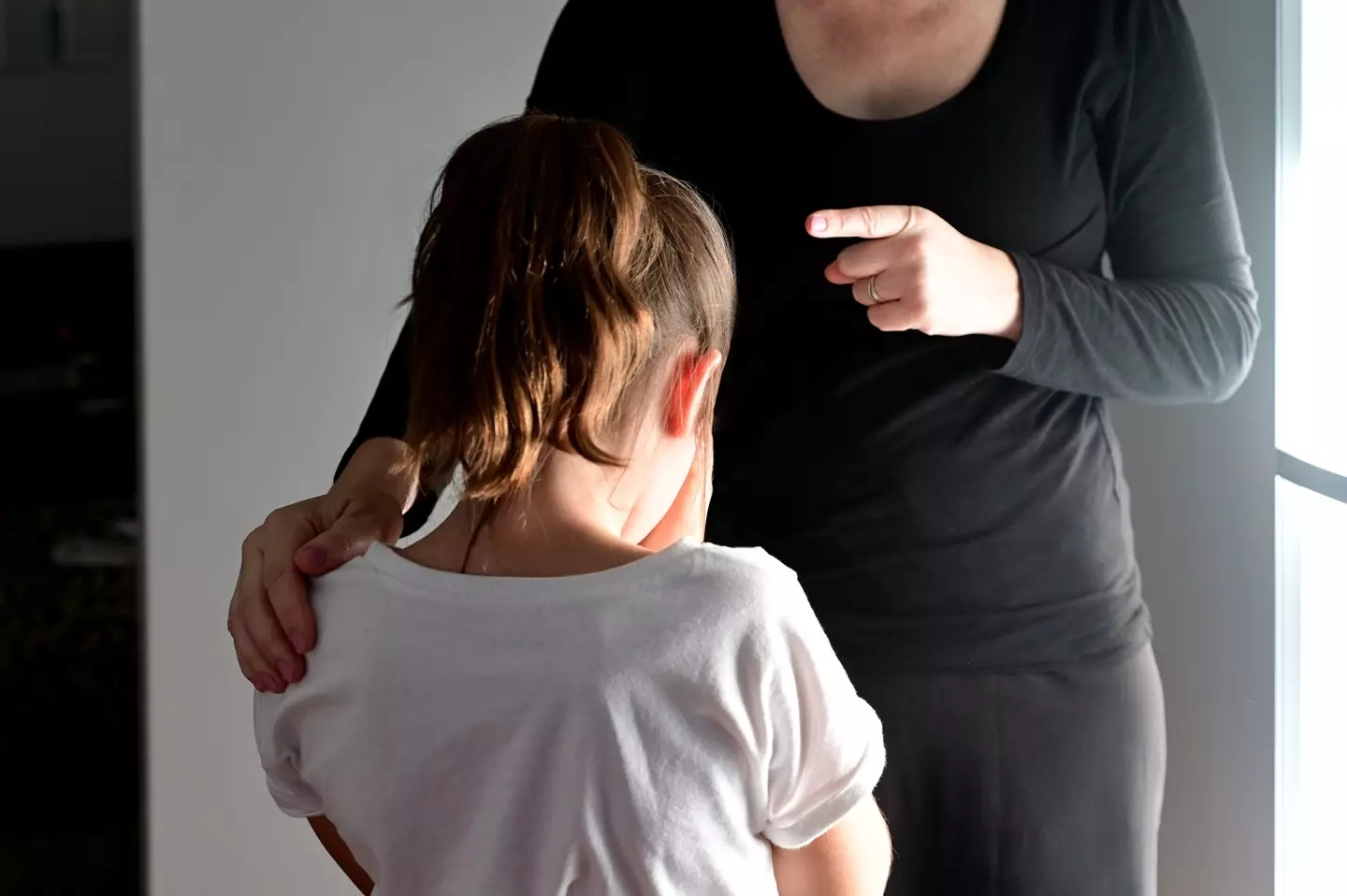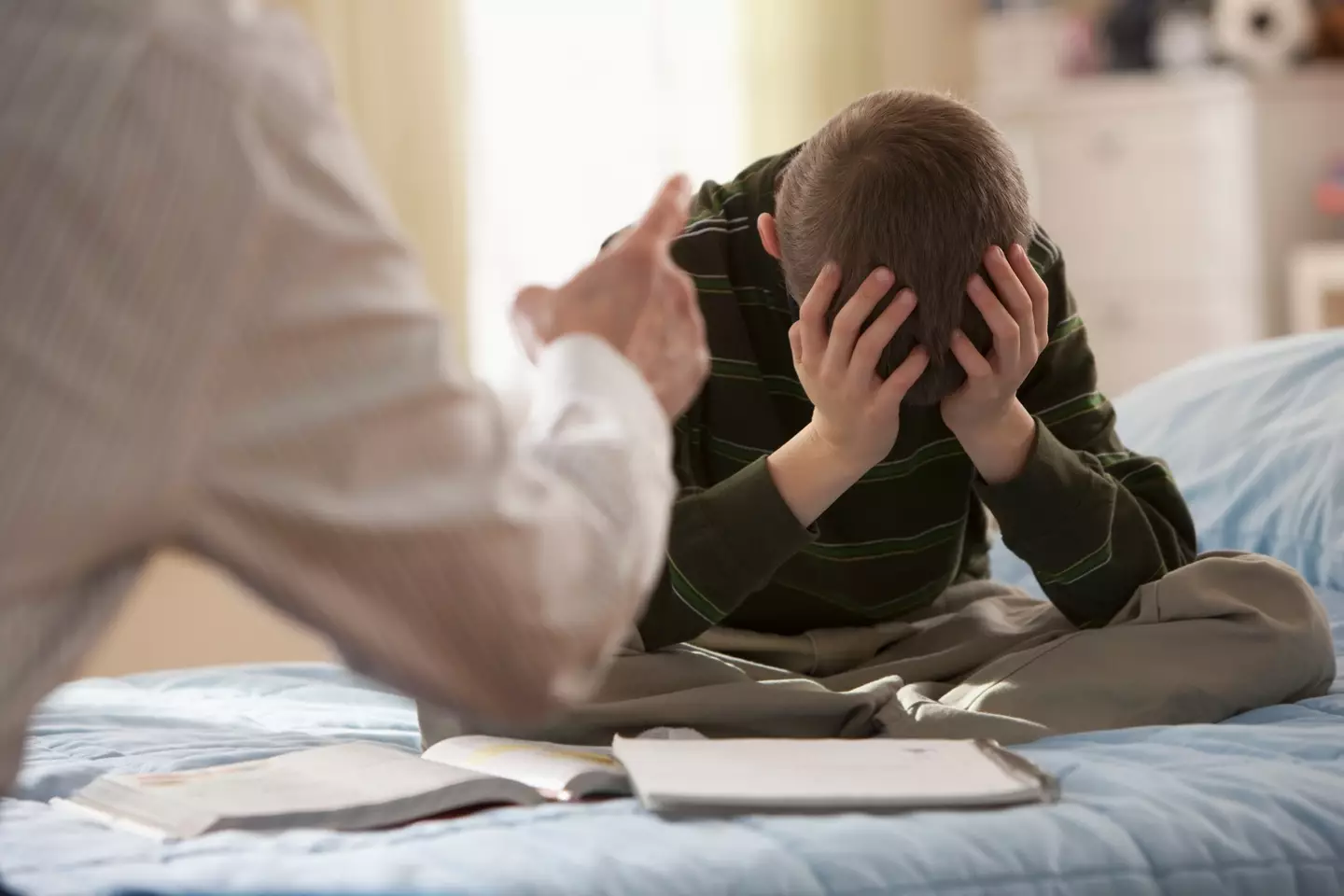
Narcissists can cause devastation in the emotional lives of those around them.
While having a partner who is a narcissist is bad enough, those unlucky enough to have a narcissist parent can spend the rest of their lives psychologically scarred from the experience.
Psychotherapist Kathleen Saxton told Stylist about the heartbreaking impacts parents with narcissistic personality disorder can have on their children.
Advert
Defining a narcissist as someone with an 'aching need to assert themselves as both a hero and a victim', Saxton reveals their cruel parenting can lead their children to later seek therapy as adults.
Saxton explains: "While we all carry narcissistic traits, a narcissist often carries a dark emptiness and lack of self-worth."
She went on to outline the horrific ways they try and control their children, and the psychological damage this causes.

Looking at people as objects
One of the main giveaways of a narcissistic parent is the way they look at other people, which also includes their own children, and if they look at them as objects on their own route to fulfilment.
Advert
According to the expert, they need people like family members and those close to them to affirm their self-narrative and image, and in public, they need their family to mirror a perfect family.
Saxton says: "While in public, the family unit is expected to ‘perform’ like the von Trapp family.
"Even if there has been a major blow-up at home that morning, as the child you will be expected to be ‘on show’ to maintain the parent’s public narrative."
The need to control
Parents with NPD control their family in several ways, like angry outbursts or even physical threats, financial control, preferences with your physical appearance, or high expectations with school.
Advert
But according to Saxton, the most damaging form is coercive control through psychological abuse such as unpredictability, criticism, playing favourites, withholding knowledge or guilt-tripping - all of which can create anxiety for the child.
Saxton says: "The result is that their family remains on tenterhooks around them, while they’re waving and smiling to the outside world."

Choosing a 'golden child'
Narcissistic parents can often choose a 'golden child' that will be manipulated into fulfilling their dreams, essentially letting their ego/egos flourish through them.
Advert
This type of parent is always eager to show off academic or sporting achievements as well as physical attractiveness, with photos and awards being paraded around.
They may seek validation on social media with pictures with this child with no other children present in photos.
Saxton says: "Most disturbingly, something called ‘emotional incest’ can also arise, where the narcissistic parent emotionally replaces the diminished partner by inappropriately confiding in and prioritising the golden child as a ‘quasi-partner’, making decisions together about the family home, the siblings and even finances."
This can have devastating consequences on that child when they become an adult.
Advert
Saxton adds: "When the golden child becomes conscious of how a parent they may have idealised has manipulated them, they can collapse emotionally."

Choosing a 'scapegoated child'
On the opposite end of the spectrum, there may be a 'scapegoated child' that the parent will project their 'dark, shadow self' onto.
The child can often show signs of depression and fear following this, as they are often dismissed by the parents instead of being checked on to find the problem.
It is hard for this child, and according to Saxton, this is the child that she often sees attending therapy in adulthood, suffering from difficulty in relationships with those at work or in their personal lives.
She says: "It also can manifest as a codependent adult struggling to release themselves from someone whom they feel they ‘cannot let down’, having learned to prioritise others in childhood."
What about adulthood?
Narcissistic abuse can continue into adulthood despite not living with them, as the golden child could be asked to do many things by parents, sometimes unreasonably, and made to feel guilty if they can't do it.
The scapegoated child will continue to be made to feel not good enough and compared to the golden child, with similar trends continuing on, albeit in smaller doses.
Saxton says: "Think Bridget Jones’s mother – a narcissistic parent if ever I’ve seen one, who both paraded, shunned, compared and ridiculed poor Bridget, despite her very best efforts to measure up to expectations."
Featured Image Credit: Getty Stock PhotosTopics: Parenting, Mental Health, Social Media